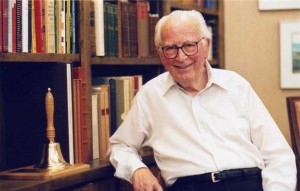#350 – Dick Bernard: Part 18. The Scourge of Half-thought, and the danger….
Today I was at the local copy place, making a photo copy of my mother’s first contract as a teacher. Busch Esther 1929 contra001.
At the next copier, a young woman was making large numbers of copies on colored paper. A somewhat older woman, though much younger than I, was with her.
We struck up a brief conversation. It turned out that the younger woman was a 4th grade teacher in a neighboring public school district. I gave her a copy of Mom’s 1929 contract. The other woman was the teacher’s mother. “Teaching is a really hard job“, the Mom said, referring to her daughter. Shortly into my Mom’s contract the great economic crash of 1929 occurred. I wonder….
Earlier I had sent around a commentary recently written by a veteran of many years in the trenches of public education, particularly teacher union work. I’d like the young woman to have this commentary as well, but likely will not ever hear from her or meet her again. But for the readers of this blog, here is Bob Barkley’s commentary. (Disclaimer: Bob Barkley is a good friend whose professional career mirrored mine, though at the national level and in another state.)
Later in the afternoon my wife and I watched 60 Minutes and saw a segment on the revision and treatment of a certain word – the “N” word – in Mark Twain’s Huckleberry Finn. The segment featured teachers and students at our local high school, one mile from our home. It was a surprise to say the least. And excellent. It was refreshing to see an example of real discussion and debate within the public school setting involving teachers and students.
Economically, most all of us live in almost heavenly economic conditions compared to Mom and those farmers she worked for in 1929-30.
But public policy, especially public education, is, and has for years become, a major ideologic battleground in the United States. It is a hard, uncertain, place to be.
At the moment, at least, the juggernaut that is the “Power” establishment seems to have the upper hand in setting in place regressive public policies under the many guises presented: “reform”, diminishing or destroying the impact of unions, controlling curriculum, bringing that young woman’s salary and benefits to heel, et al. The young lady has more to worry about than those colored sheets of paper she was working with.
I have come to observe an alarming degree of what seems to be half-thought by most everyone in society, most especially Power People – the ones who can do the most damage. (By “half thought” I mean an utter lack of thinking through anything beyond the short term “win” or “loss”.) There are endless examples. People see an issue only through their own lens, and at the moment. The long term is what happens now, this year, on our own terms. In fact, “half-thought” might be giving far more credit than deserved. We want exactly what we want, now. Too often, we want what we want required of others, too.
The young teacher I saw this afternoon is likely too tired and overwhelmed with doing what she is supposed to do in the classroom to pay much mind to things like attempts to destroy her rights to collective representation or due process for dismissal or anything like that. She’s too young to remember the struggle to get what she has. There are legions like her, too busy to think of anything beyond doing what they’re directed to do.
In the 60 Minutes segment, the issue being “debated”, between two obviously highly professional colleagues, could be decided, case closed, by implementation of state or federal Laws limiting or eliminating their options – closing off their debate. You win or you lose. Period.
There are winners and losers in the half-thought society I mention above. The winners prevail in getting the RIGHTS to decide. The losers are given the RESPONSIBILITY to do what is imposed on them. It is not healthy for winners or losers or our society.
I still quite often see a TV commercial for a particular alcoholic beverage which seems to touch this issue. It is apparently a play on a more famous quotation, “With great privilege comes great responsibility“. The commercials says: ‘With [enjoyment of this] great [alcoholic beverage] comes great responsibility.” In other words, get drunk with our product, but don’t blame us afterwards….
It would be good for the movers and shakers – those out to “win” at any cost – to pay very serious attention to the “responsibility” piece, the long and global view.
As for the rest, the victims of this Power-grab, I hope they get themselves organized and that they hang in there.
They, not the rich and powerful, are the salvation of this country of ours.
There’s will be a really, really difficult job. But if they lose, we will all lose.









